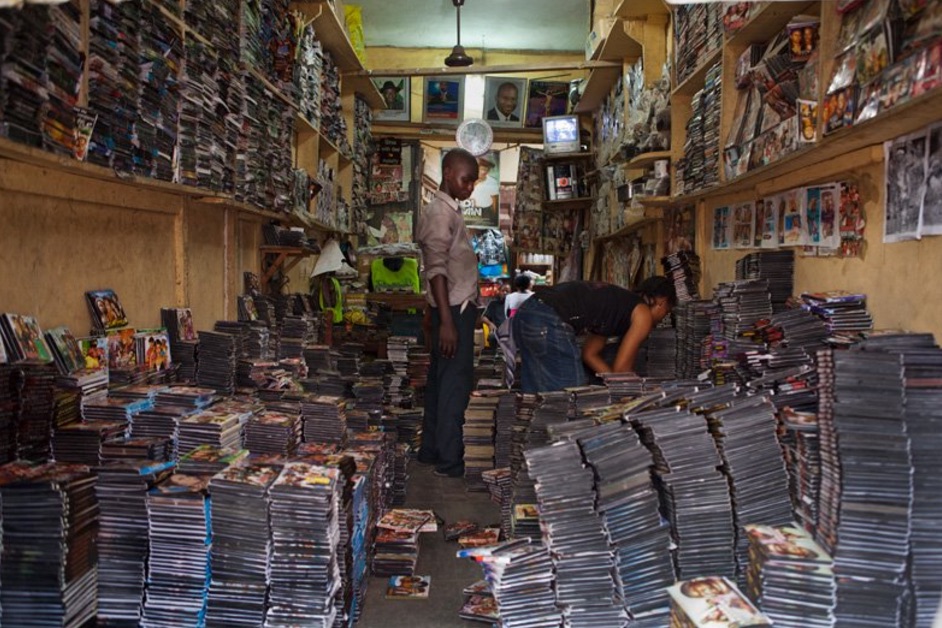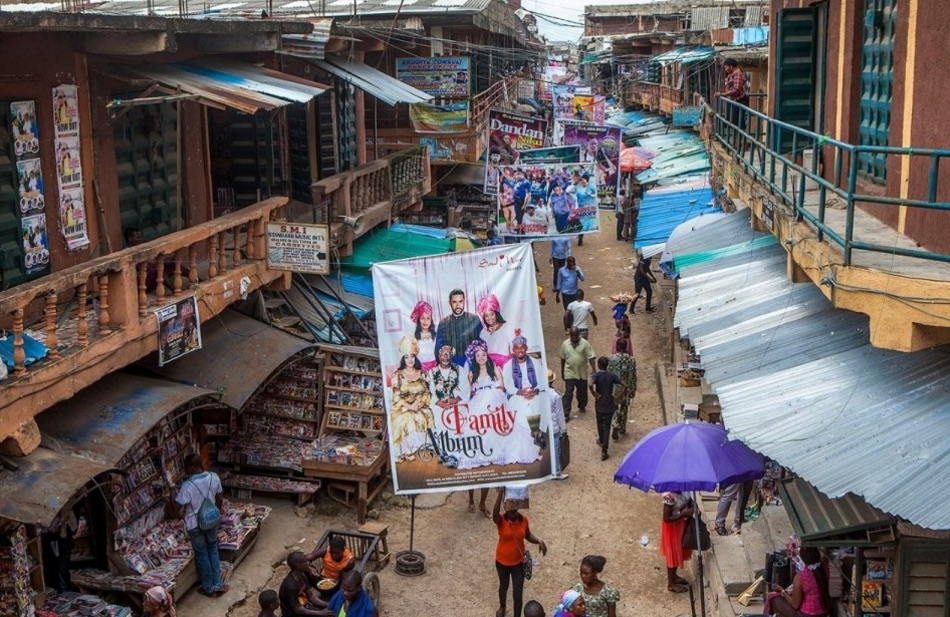After India’s Bollywood, the Nigerian film industry is the second largest in the world based on annual production. Nollywood produces an astonishing average of 50 movies per week employing roughly a million people in the process.
But this booming industry, with an estimated yearly revenue north of $5 billion, is being crippled by an endemic piracy and corruption problem that’s devouring at least half of that sum in unearned profits.
Yes, there are various laws protecting media owners’ intellectual property, but these are poorly regulated, resulting in few arrests. In their latest report for the first quarter of 2017, the Nigerian Copyright Commission (NCC), supposedly tasked with protecting citizens’ intellectual property, claim they have confiscated counterfeit books and DVDs with a street value of more than N870 million ($2,7 million). But despite carrying out eight anti-piracy raids since January, only three people have been arrested.
Piracy is definitely a massive problem in Africa’s largest economy. The World Bank estimates that for every legitimate copy of a film sold, nine more are pirated. The brazen impunity with which many of these pirate kingpins operate makes them more powerful than the heavyweights within the movie industry itself.

A menacing effect
Piracy has gulped up an alarmingly huge amount of profits since the industry took off in the early 2000s, but some film producers like Christopher Ozoemena have found ways to make money “even with all the pirates”, he told Financial Times.
Christopher scored a monster hit with his 2010 romantic comedy The Maidens, selling more than one million copies at a wholesale price of about 25 US cents each. He acts as his own distributor, capturing all the retail profits directly. But don’t let this rosy picture fool you; Christopher’s success is not everyone’s.
In 2015, popular Nigerian actor and award winning producer, Kunle Afolayan, discovered first-hand the severe impact piracy can have on revenue. When visiting South Africa, a friend notified the 42-year-old his latest film, October 1, had been pirated and was being sold on Lagos streets at $3 a copy. A devastated Kunle knew his dark psychological thriller was yet to recoup the $2 million he invested in the project. He immediately called “some important people,” the filmmaker told PM News Nigeria, asking them to do something about it. But no luck. Local law enforcement responding to his complaints was threatened when they tried to confiscate illegal copies of the film.
“I believe the NCC know these kingpins behind the nonsense,” says Kunle assuredly. “They’ve held meetings with these pirates to resolve issues. Can you believe that a body that is supposed to be the police of the creative industry is now negotiating with the pirates?” Personally, Kunle feels the NCC is “full of excuses” often complaining they don’t have the resources to investigate claims of piracy or carry out raids. And even if they do carry out an intermittent raid, “you will see the films right back on the streets again.”
Shortly after, the filmmaker threatened to leave Nigeria for good, lamenting that legitimate businesses would never be able to thrive due to the activities of pirates. “You can imagine having about 500 people simultaneously selling a pirated film on the streets of Lagos. That’s what pirates have done to my film.
“We can’t continue like this.”
The possibility of a solution
Cases like these highlight the detrimental effect piracy has within the Nigerian film industry, but also shows that the problem persists partly due to a serious lack of accountability, especially for the distributors. Often when a movie ends up on the black market, it was leaked by a film distributor who accepted a bribe from the pirate kingpins to give them a digital copy of the movie for mass production. Even cinema operators have told news outlets pirates threaten them if they do not hand over copies of the films they’re playing.
The solution? Trust no one. Especially not the so-called “legitimate” film distributors. In a recent interview with The Africa Report, Congolese director Djo Tunda Wa Munga said he hopes to tackle the piracy problem with what he called “self-distribution”, in other words finding his own way to get his work in front of a paying audience, with no leaks along the way.

Luckily advances in technology means it’s becoming increasingly possible for filmmakers to prevent, or at least limit their movies from leaking, especially if they can control who has access to it every step of the way. During the long chain of custody every film inevitably goes though, filmmakers can track who has access to their work and, should it leak, discover where along the chain it happened.
Secure distribution platforms like Screener Copy offer such a solution. Once a video file is securely uploaded, the owner sends it to a pre-determined list of recipients. Each recipient receives a unique copy of the file, embedded with an unnoticeable watermark forever linking their copy to them. And if the film is leaked, the owner will be able to know who leaked it, at what point it was leaked, and hold that person responsible.
With annual losses tallyingmore than $2 billion, the piracy problem in Nigeria needs a long-term and sustainable fix. If the industry can start by creating a culture of accountability, Nollywood can come together to take action and help this booming industry to survive.
Start secure distribution of your film today. Sign up to Screener Copy for free.


